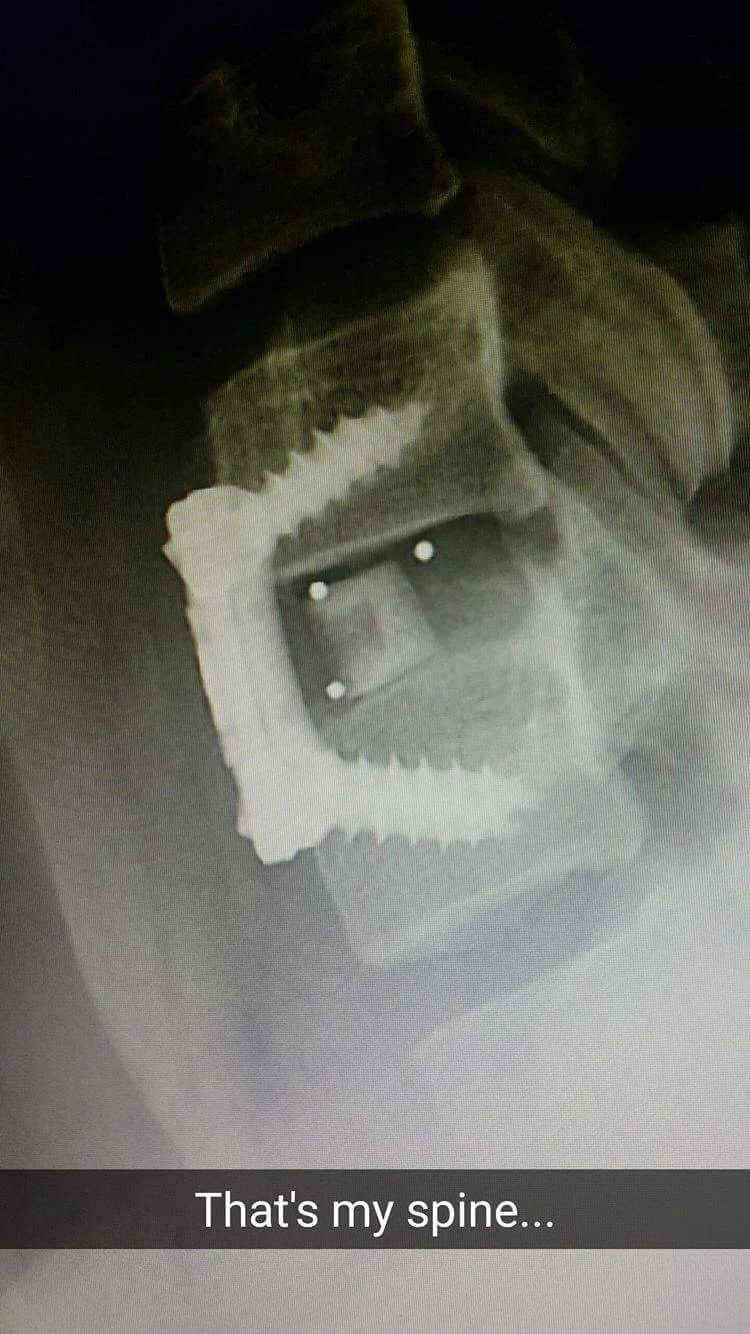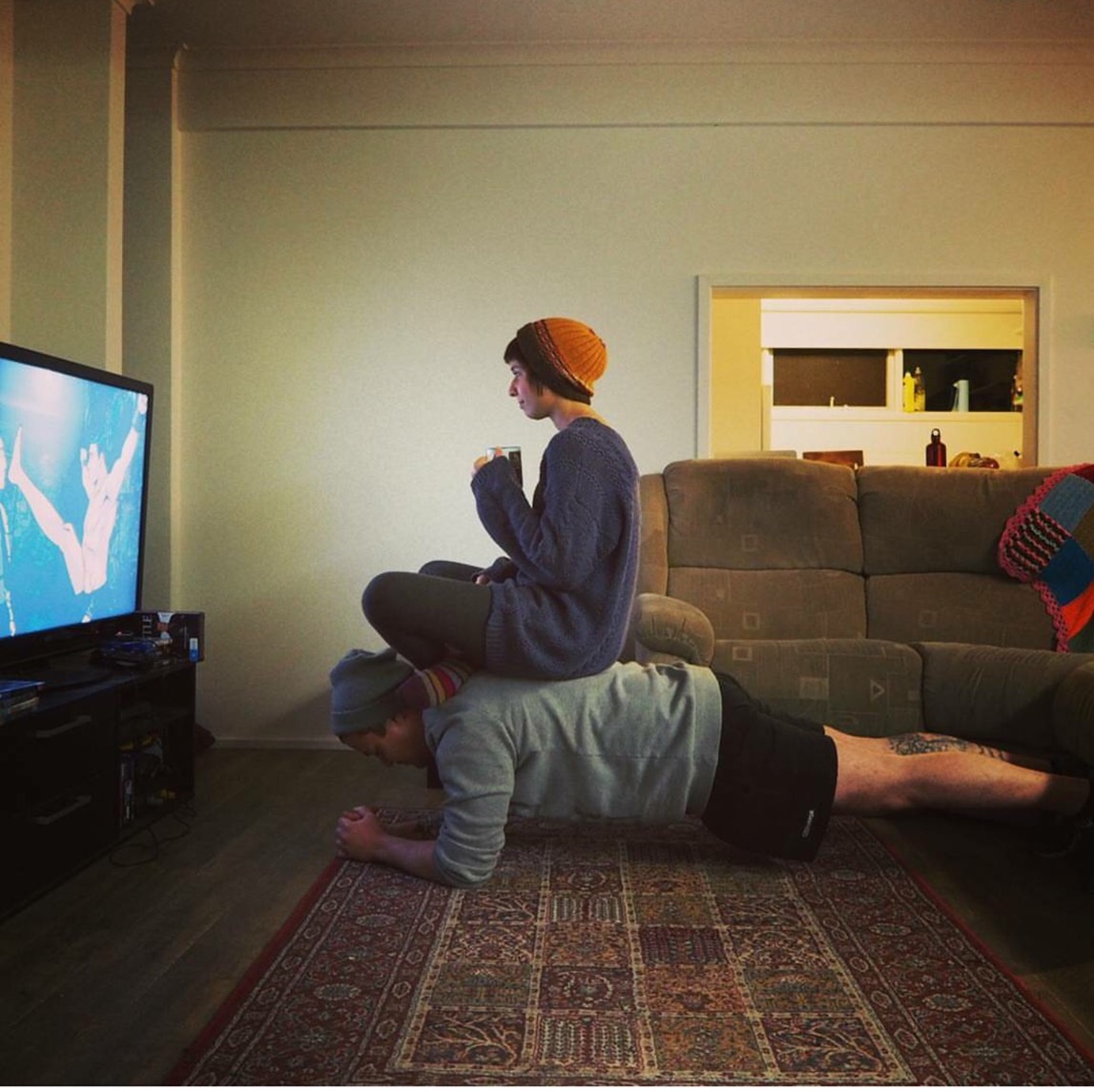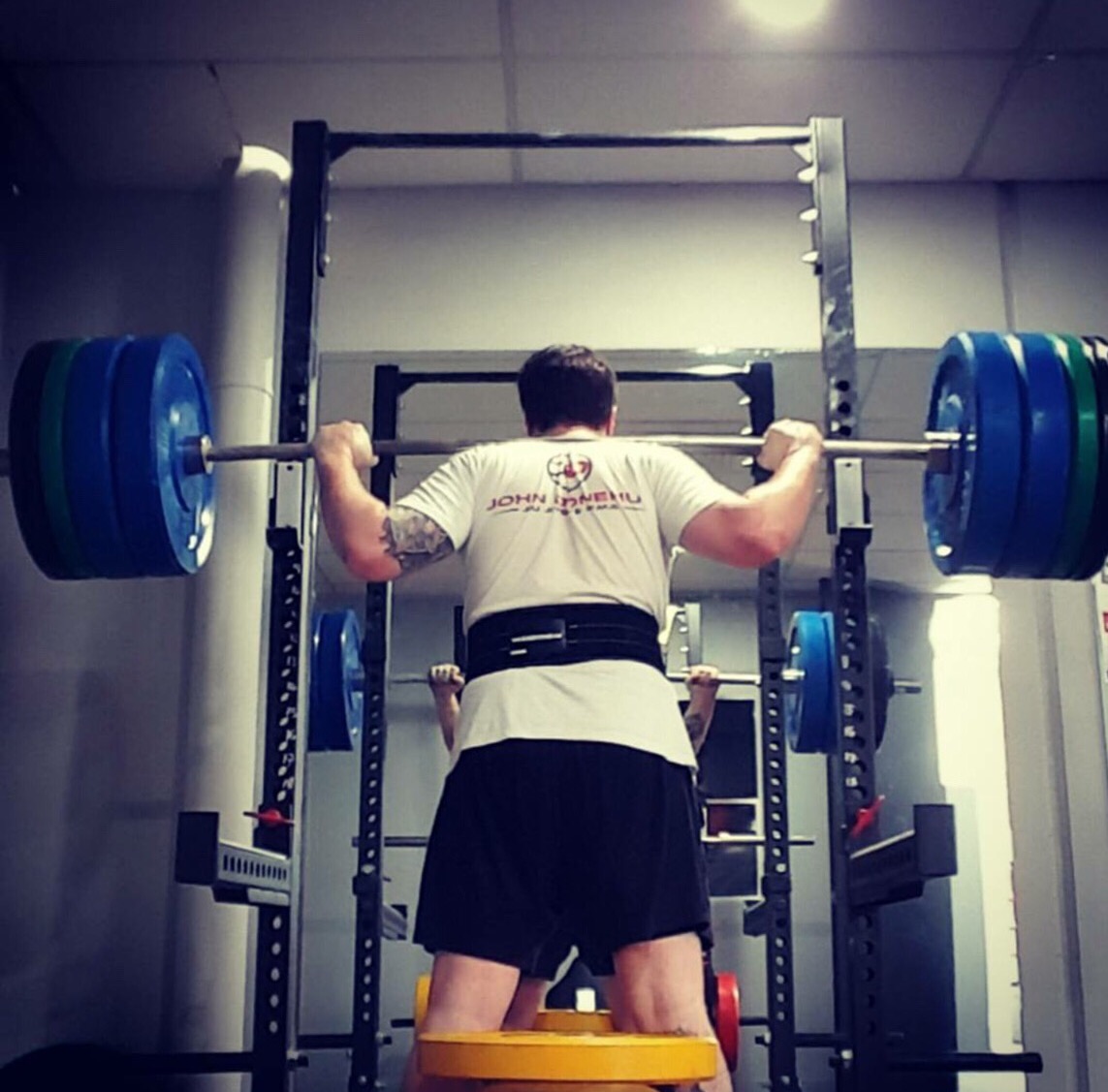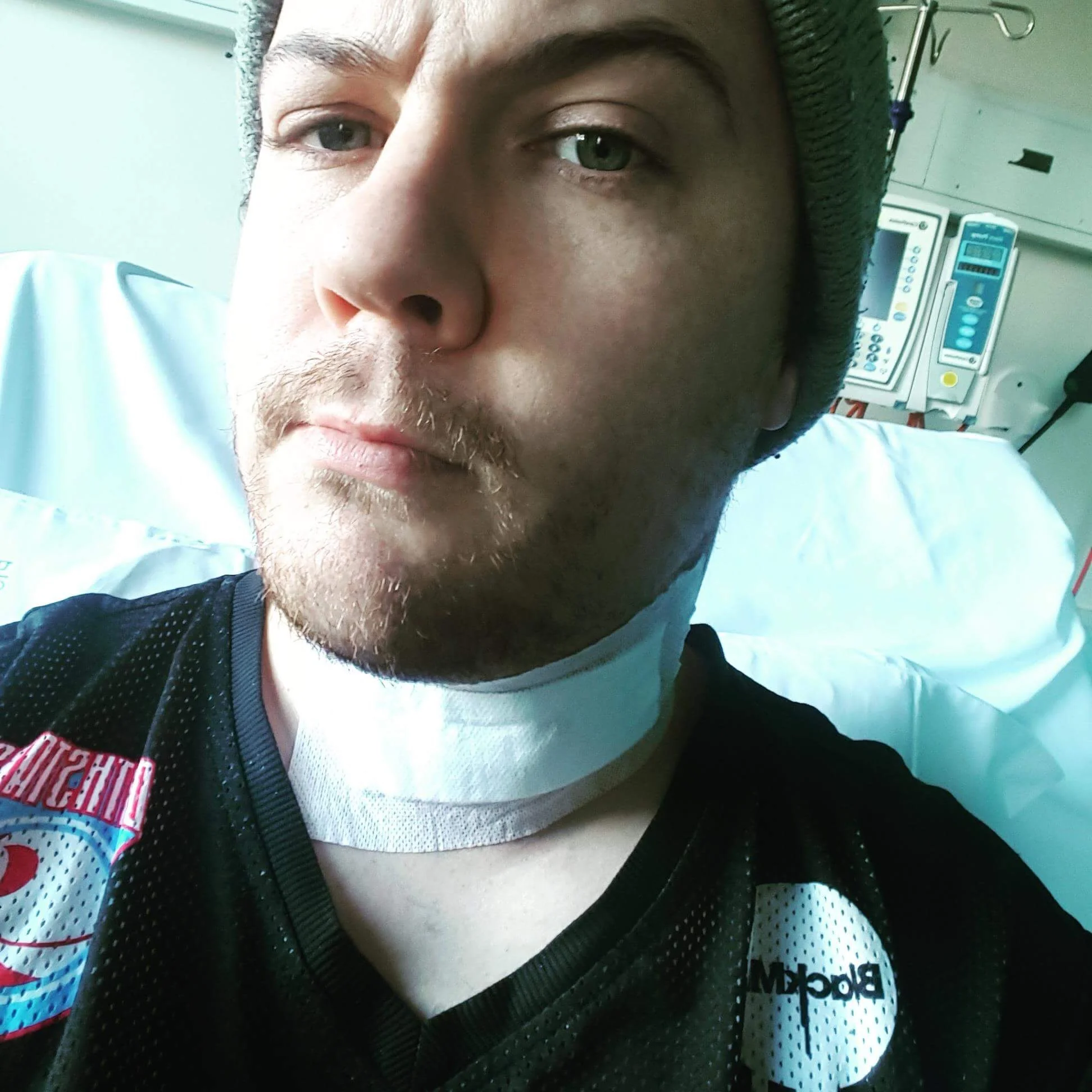"Spinal Surgery at 26 Years Old"
“The worst case scenario is you’ll never walk again … and you’ll have limited use of your arms and hands.” That was a sentence that I never expected to hear.
Especially not at 26, whilst being able to comfortably squat 150kg for five and train Brazilian Jiu Jitsu a few times a week.
It was about 3pm on a Friday and I was sitting in front of one of the best neurosurgeons in the country, hours beforehand I had been walking into my local GP clinic thinking that the MRI he ordered earlier that week would show that it was just some sort of muscular issue that wouldn’t let up. This sort of injury just doesn’t happen to young people typically.
To give you a brief series of events - about five weeks prior to hearing those words come out of the neurosurgeon’s mouth, I woke up with what felt like a severe trapezius tear on my left side. I was in significant pain that wasn't subsiding. It then started moving around my back and down my left arm on a day to day basis.
Some days my left elbow hurt, some days it was my scapula. Every day was excruciating. After three visits to my GP he ordered a cervical spine MRI and discovered a large disc extrusion at C6/C7 - Origin unknown. To this day I have no idea how I managed to injure myself so significantly. I was immediately referred to a neurosurgeon, and then went to another for a second opinion (I saw both within four hours of finding out about the seriousness of the problem from my GP).
Because of the nature of the extrusion, which was compressing a nerve and severely compressing my spinal column (the first neurosurgeon was surprised I could walk without pain), the only option for complete recovery was surgery. In the course of six hours I went from thinking I had some sort of muscular problem, to trying to come to terms with the idea that a 26 year old physically active male would require surgery on his spine. This all happened on a Friday, the following Monday I had a follow up appointment with the neurosurgeon to explain the procedure and to put me on the list - Category 1, surgery within 30 days.
To add insult to injury, about two weeks later I was made redundant at my job - I was a casual receptionist at a gym to complement my full time study load. They deleted one of my shifts completely, and then replaced my other shift with a full time employee meaning there was no longer any room for me on the roster. This was devastating, and I did everything I could sitting in the office with my boss to not cry. But at the time it was just a blip on my radar, my head was preoccupied by the surgery.
About a week after that I went under the knife at The Alfred Hospital (a week ago at time of writing). They completed a C6/C7 anterior cervical discestomy and fusion. Basically, they removed the problem disc between C6/C7, put in a prosthetic, and then fused both vertebrae with a titanium plate to make sure it doesn't pop out.
Estimated recovery time: 6 to 8 weeks, during which time I can't lift more than 1kg, or do any strenuous activity (I'm slowly losing my mind on the couch playing video games).
Now I’m not one to let a significant trauma go through to the keeper without some sort of evaluation and contemplation, so here’s three things I’ve learnt from my unfortunate series of events:
1. Listen to your body, and to your mind
I’ve trained through injuries before, both in Krav Maga and in Brazilian Jiu Jitsu. But something about this one felt different. Not to say I didn’t try to train, but this felt different. I had shooting pains down both my arms when I did something as simple as jogging. Mentally, this was extremely frustrating. All I wanted to do was train, and with my body not letting me at 26 years old, it was easy to try to go into denial and push through. When your mind wants to do something your body can’t, your mental state can get pretty chaotic. But it’s important to listen. You only have one body, and in my case I only have one spine. If you want it to last a lifetime it needs proper fuel and rest, and an occasional oil change (read into that what you will).
2. The care and kindness of your Friends and Family is truly humbling
I don’t like asking for help … in fact I f***ing hate it. I’m a fiercely independent person and I really don’t like relying on others. I’m a mature, single adult responsible for no one but myself, so why should anyone else have to be responsible for me? But if you follow this line of thought through to completion there’s the risk that it could leave you a solitary, lonely being with no community. Your friends and family are your community, they’re there for you. The only expectation from their help is that you get better so you can remain a part of the community.
3. Struggle is hard, but it’s helpful and sometimes necessary
As Ernest Hemingway once famously said, “The world breaks everyone, and afterward, some are strong at the broken places”. This is the closest I’ve come to feeling broken in a long time… gun to my head I’d go so far as to say I am broken. It’s mentally draining and extremely stressful knowing that I’m physically restrained for at least six weeks, if not eight.
During which time I can’t find another job and work for my supper like the majority of the population, instead relying on the kindness of friends, family and even complete strangers to help me keep a roof over my head until I can work again. But my take away from this couch ridden sorry state I find myself in is that it’s okay to be vulnerable.
Humans are mostly good, your friends and family aren’t going to let you fail. They’re there for you. The best thing you can do for yourself is to be selfish in recovery, heal yourself to the best of your ability, and come back to reality strong enough to be there for them in return should the time come.
Today marks the end of week one. Bring on the next seven.
- Toby Carr
One year following his injury, Toby was interviewed on the Reality Check Podcast to discuss his progress. Listen to that episode here.
Check out Toby's blog, follow him on Twitter, Instagram and Facebook





